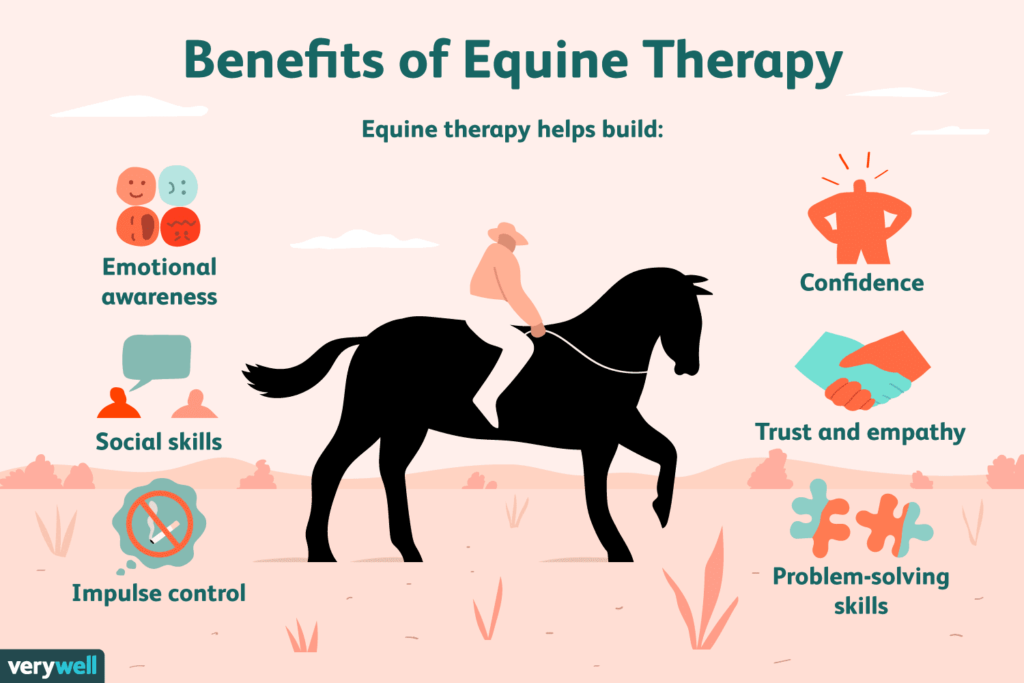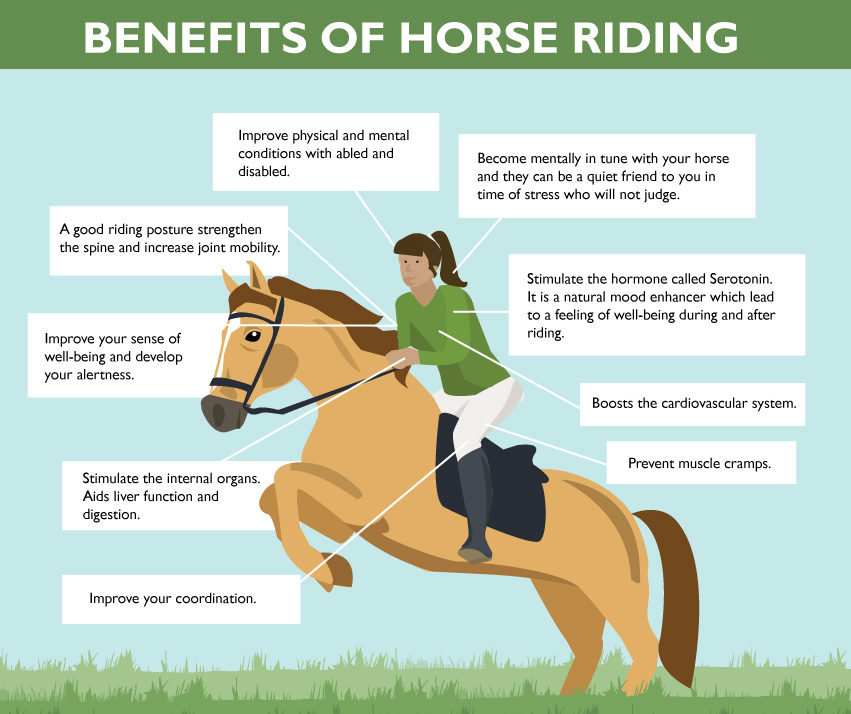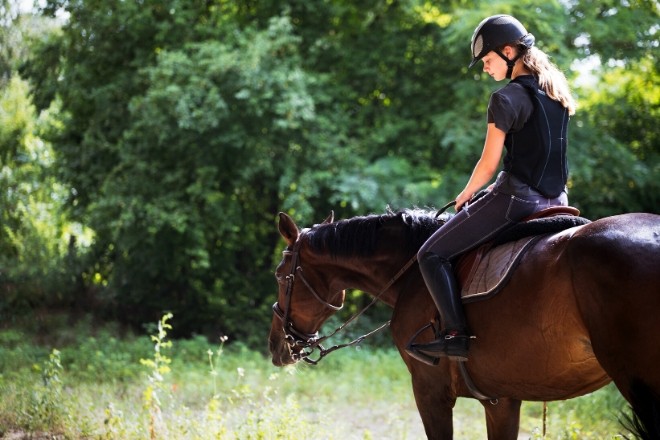Have you ever wondered about the psychological benefits of horseback riding? Well, let me tell you, there are quite a few! Horseback riding isn’t just about the physical aspect of being on a horse, it can have a profound impact on your mental and emotional well-being as well. In fact, studies have shown that horseback riding can reduce stress, improve mood, and even boost your self-confidence.
But that’s not all, there’s so much more to explore in this topic! In my upcoming articles on horsebackridingdude.com, we’ll delve deeper into the various psychological benefits of horseback riding. From the therapeutic effects on individuals with mental health conditions to the sense of connection and trust that develops between riders and their horses, we’ll cover it all. So, if you’re curious to learn more about how horseback riding can positively impact your mind, keep an eye out for our upcoming articles on the website. I promise you won’t be disappointed!
The Psychological Benefits of Horseback Riding
Horseback riding is not only a fun and adventurous activity but also offers numerous psychological benefits. Whether you are a beginner or an experienced rider, the experience of connecting with these majestic animals can have a profound impact on your mental and emotional well-being. In this article, we will explore the various psychological benefits of horseback riding and how it can positively impact different aspects of your life.

Physical Health Benefits
Before delving into the psychological benefits, it’s crucial to acknowledge the physical health benefits that come with horseback riding. These benefits lay the foundation for overall well-being and contribute to the positive impact on mental and emotional aspects.
Improved Core Strength
Horseback riding engages the core muscles as you balance and maintain proper posture while riding. The act of staying balanced on a moving horse strengthens your core muscles, including the abdominals, back muscles, and pelvic floor. Developing a strong core not only improves stability but also prevents back pain and improves overall body strength.
Increased Cardiovascular Fitness
Engaging in horseback riding activities such as galloping, jumping, or even a brisk trot can greatly enhance your cardiovascular fitness. Riding stimulates heart rate and increases blood circulation throughout the body, providing a good cardiovascular workout. Regular horseback riding sessions can lead to improved stamina and endurance.
Enhanced Balance and Coordination
Maintaining your balance while riding a horse requires a great deal of coordination between your body and the movements of the horse. Over time, this helps in improving your overall balance and coordination skills. The constant adjustments you make to stay centered on the horse’s back strengthens the muscles involved in balance and coordination.
Improved Flexibility and Joint Mobility
The movements involved in horseback riding, such as mounting and dismounting, as well as the natural movement of the horse, require flexibility and joint mobility. Regular riding can lead to increased flexibility in the hips, ankles, and other joints, allowing for better range of motion and reducing stiffness.
Mental Health Benefits
Now, let’s explore the psychological benefits of horseback riding, which can greatly contribute to your mental well-being and overall quality of life.
Reduced Stress and Anxiety
Interacting with horses can have a profoundly calming effect on the mind and body, reducing stress and anxiety levels. Horses are known for their intuitive nature and can sense your emotions. Spending time with them and feeling their calm and gentle nature can help you relax, release tension, and reduce stress.
Improved Mood and Self-esteem
Horseback riding and bonding with a horse can boost your mood and increase feelings of happiness. The sense of accomplishment that comes with successfully riding and communicating with a horse can boost your self-esteem and overall self-confidence. The positive feedback received from the horse and the sense of achievement contribute to a more positive self-image.
Enhanced Focus and Concentration
When you are riding a horse, you need to be fully present and focused on the task at hand. This requires concentration and mindfulness, as you need to be aware of your body, the horse’s movements, and the surrounding environment. Regular riding can improve your ability to focus and concentrate, which can translate to other areas of your life as well.
Increased Mindfulness
Riding a horse allows you to be fully in the present moment, as you need to be attentive to the horse’s cues and respond accordingly. This promotes mindfulness, the practice of being aware of and fully engaged in the present moment. Mindfulness has been shown to reduce stress, enhance mental well-being, and improve overall life satisfaction.
Emotional Benefits
In addition to the mental health benefits, horseback riding also offers numerous emotional benefits that can greatly enhance your overall emotional well-being.
Greater Sense of Accomplishment
Mastering the skill of horseback riding and overcoming various challenges along the way can give you a greater sense of accomplishment. Each milestone achieved, whether it’s learning a new riding technique or successfully completing a competition, can boost your self-worth and provide a sense of fulfillment.
Boosted Confidence and Self-confidence
Horseback riding requires courage and a certain level of risk-taking. Over time, as you develop your riding skills and bond with the horse, your confidence levels begin to soar. The trust and connection you build with your horse can transfer to other areas of your life, improving your overall self-confidence.
Developing Trust and Empathy
Building a relationship with a horse is built on trust, communication, and empathy. Horses are incredibly perceptive animals and respond to your emotions and body language. Developing trust and empathy with a horse can help you strengthen these qualities in your relationships with others, leading to more meaningful connections.
Building Resilience and Overcoming Fear
Riding a horse involves facing and overcoming fears. Fear of falling or the unknown can be common in the beginning, but as you gradually gain experience and build trust, you develop resilience and learn to overcome your fears. This newfound resilience can extend beyond the riding arena and help you face challenges and adversity in other areas of life.
Social Benefits
Horseback riding also provides numerous social benefits, as it brings people together and fosters a sense of community.
Creating Connections with Horses
The bond between a rider and a horse is a unique and special connection. As you spend time with your horse, grooming, feeding, and riding, you develop a deep and meaningful connection that goes beyond words. Horses can become true companions and bring immense joy to your life.
Developing Bonds with Other Riders
The equestrian community is a vibrant and supportive community of riders who share a common passion for horses. Participating in horseback riding activities and events allows you to meet like-minded individuals and develop lasting friendships with fellow riders. Sharing experiences, tips, and stories can further enrich your riding journey.
Joining a Supportive Equestrian Community
Apart from the bonds with other riders, the equestrian community itself offers a supportive network. Being part of this community provides a sense of belonging, as you can engage in discussions, seek guidance, and share your experiences with people who understand and appreciate the joys and challenges of horseback riding.
Participating in Horseback Riding Activities and Events
Horseback riding opens up a world of activities and events to participate in. From local competitions to trail rides and horse shows, there are numerous opportunities to engage with fellow riders and showcase your skills. These activities provide a sense of camaraderie, adventure, and fun.

Cognitive Benefits
Beyond the physical and emotional benefits, horseback riding also has cognitive benefits, contributing to the overall development of cognitive skills and abilities.
Improving Problem-solving Skills
Riding horses presents unique challenges that require problem-solving skills. Understanding the horse’s behavior, effectively communicating with the horse, and navigating through obstacles all foster critical thinking and problem-solving abilities. The constant need to adapt and adjust to different situations hones your problem-solving skills.
Enhancing Cognitive Flexibility
Horseback riding requires cognitive flexibility, the ability to switch between different tasks and adjust your actions accordingly. It demands quick decision-making, as you need to respond to the horse’s movements and adapt to changing situations. Regular riding can improve your cognitive flexibility, which can be beneficial in various areas of life.
Stimulating Sensory Integration
Riding a horse engages multiple senses, including touch, sight, and hearing. The rhythmic motion of the horse, the feel of the reins in your hands, and the sights and sounds of the surroundings all contribute to sensory integration. This stimulation enhances neural connections and improves sensory processing abilities.
Developing Spatial Awareness
Horseback riding requires a keen sense of spatial awareness, as you need to navigate through different environments and gauge distances accurately. This skill translates to improved spatial awareness in everyday life, such as better judgment of spatial relationships and improved coordination.
Therapeutic Benefits
Horseback riding has been widely recognized as an effective therapeutic approach for various populations, providing numerous physical, emotional, and cognitive benefits.
Equine-assisted Therapy for Individuals with Disabilities
Equine-assisted therapy, also known as therapeutic horseback riding, is a form of therapy that utilizes interactions with horses to improve physical, emotional, and cognitive abilities in individuals with disabilities. The rhythmic motion of the horse can help improve muscle strength, balance, coordination, and emotional well-being.
Therapeutic Horseback Riding for Mental Health Issues
Horseback riding has been found to be beneficial for individuals with mental health issues such as anxiety, depression, and post-traumatic stress disorder (PTSD). The calming and grounding nature of horses can provide a sense of relief, promote emotional regulation, and help individuals cope with their symptoms.
Hippotherapy for Physical Rehabilitation
Hippotherapy is a therapeutic intervention that uses horseback riding as part of physical rehabilitation programs. The natural movement of the horse stimulates the rider’s muscles, promoting strength, balance, and coordination. It is particularly effective for individuals with physical disabilities or recovering from injuries.
Specialized Programs for Veterans and Trauma Survivors
Horseback riding programs specifically designed for veterans and trauma survivors have shown remarkable results in aiding their recovery and healing processes. The supportive and non-judgmental environment, coupled with the unique bond formed with the horse, can help reduce symptoms of trauma, improve self-esteem, and facilitate the healing journey.

Educational Benefits
Engaging in horseback riding activities also provides numerous educational benefits, allowing you to expand your knowledge and understanding of horses and equestrianism.
Learning Horsemanship Skills and Horse Care
Horseback riding involves more than just riding the horse. It also includes learning about horse care, grooming, feeding, and basic horsemanship skills. These educational aspects deepen your connection with horses and enable you to take better care of them.
Understanding Horse Behavior and Communication
Developing a deeper understanding of horse behavior and communication is an essential part of horseback riding. Learning to read the horse’s body language, vocalizations, and expressions enhances your ability to communicate effectively with the horse and build a harmonious partnership.
Studying the History and Evolution of Horseback Riding
Exploring the history and evolution of horseback riding allows you to gain a broader perspective on this timeless activity. Learning about different riding disciplines, historical events, and famous horse riders enhances your appreciation for the rich cultural significance of horseback riding.
Exploring Different Riding Disciplines and Styles
Horseback riding offers various disciplines and styles to explore, such as dressage, show jumping, western riding, and trail riding. Each discipline has its own unique techniques, rules, and challenges. Exploring these different disciplines can broaden your horizons and deepen your passion for horseback riding.
Outdoor Experience
One of the undeniable appeals of horseback riding is the opportunity to immerse yourself in the great outdoors. The connection with nature and the beauty of rural landscapes contribute to the overall experience and provide additional benefits for your well-being.
Enjoying Nature and Fresh Air
Spending time outdoors and breathing in fresh air has numerous benefits for your physical and mental health. Horseback riding allows you to connect with nature, appreciate its beauty, and escape the confines of indoor spaces. The tranquility and serenity of the natural environment can be incredibly revitalizing.
Experiencing the Beauty of Rural Landscapes
Exploring countryside trails on horseback provides a unique perspective and allows you to experience the beauty of rural landscapes firsthand. The rolling hills, meadows, and forests create a picturesque backdrop that further enhances the enjoyment of your riding experience.
Engaging in Outdoor Activities and Exploration
Horseback riding opens up opportunities for engaging in various outdoor activities and exploration. Whether it’s trail riding, cross-country rides, or camping trips with your horse, these activities expand your horizons and provide adventure, excitement, and a deeper connection to nature.
Developing an Appreciation for Wildlife and Ecosystem
As you ride through different natural environments, you get the chance to observe and appreciate the wildlife and ecosystem around you. From spotting birds and small animals to admiring the diverse flora, horseback riding allows you to develop a greater appreciation for the natural world and its delicate balance.

Sense of Freedom
Horseback riding offers a sense of freedom and liberation that is difficult to replicate in other activities. The unique experience of being on a horse, feeling its power and agility, can provide a much-needed escape from the responsibilities and constraints of everyday life.
Escaping Daily Routines and Responsibilities
When you are on horseback, you can momentarily escape the demands of daily routines and responsibilities. The focus and attention required while riding allow you to be fully present and immerse yourself in the experience, providing a much-needed break from the pressures of everyday life.
Feeling Liberated from Constraints and Limitations
Horseback riding provides a sense of freedom and liberation from the constraints and limitations of your own body. As you ride and move in sync with the horse, you feel a heightened sense of agility and empowerment, transcending physical limitations and experiencing a newfound sense of freedom.
Experiencing the Thrill of Speed and Agility
For more experienced riders, the thrill of speed and agility while horseback riding can be exhilarating. Galloping across an open field or jumping over obstacles creates a rush of adrenaline and a sense of freedom that is unparalleled. This experience can invigorate your spirit and provide a sense of joy and excitement.
Embracing the Open Horizons of Horseback Riding
Horseback riding allows you to explore new horizons, both figuratively and literally. The vast open spaces, unlimited riding trails, and endless possibilities open up a world of adventure and exploration. This sense of exploration and discovery fuels a sense of freedom and a thirst for new experiences.
Mind-Body Connection
Horseback riding provides an opportunity to develop a deeper connection with your body, improving body awareness, communication skills, and overall well-being.
Developing a Deeper Connection with Your Body
Riding a horse requires conscious awareness of your body and its movements. As you ride, you become more attuned to your posture, balance, and muscle engagement. This heightened body awareness allows you to develop a deeper connection with yourself and understand how your body moves and responds.
Enhancing Body Awareness and Proprioception
Proprioception, the ability to sense and understand the position and movements of your body, is crucial in horseback riding. As you ride, you develop a heightened sense of proprioception, as you need to adjust your body position and movements to stay balanced and connected with the horse’s movements.
Learning to Communicate with Non-verbal Cues
Horses primarily communicate through non-verbal cues, such as body language, touch, and voice commands. Riding teaches you to communicate effectively with horses using these non-verbal cues. This skill of understanding and responding to non-verbal communication can be valuable in improving your communication with humans as well.
Improving Body Posture and Alignment
Maintaining proper posture and alignment is essential in horseback riding. The act of constantly adjusting and aligning your body on the horse’s back improves your overall posture and alignment. As you become more aware of your body’s position, you can carry this improved posture into your everyday life, leading to better spinal health and overall well-being.

Forming a Partnership
Horseback riding is not just about riding the horse; it’s about forming a true partnership and working together as a team. This unique and profound connection between rider and horse can have transformative effects on your sense of self and interpersonal skills.
Building a Trusting Bond with Your Horse
The foundation of a successful rider-horse partnership is trust. As you spend time with your horse, providing care, and engaging in activities together, you build a trusting bond. This bond allows for effective communication, cooperation, and a deeper understanding between you and your horse.
Achieving Harmony and Synchronization in Movement
When riding a horse, your movements must synchronize with the horse’s movements to maintain balance and coordination. Achieving this harmony requires trust, communication, and a deep connection. As you and your horse move as one, the feeling of unity and synchronization can be incredibly fulfilling.
Working as a Team to Overcome Challenges
Horseback riding presents various challenges, such as navigating obstacles, mastering new riding techniques, or participating in competitions. Overcoming these challenges requires teamwork and collaboration between you and your horse. The trust, communication, and mutual support developed in this process can be applied to your relationships and collaborations with others.
Experiencing the Unique Connection between Rider and Horse
The partnership between a rider and a horse is a unique and special connection that is difficult to describe in words. It is a symbiotic relationship that goes beyond mere riding, a bond built on trust, respect, and mutual understanding. The experience of this connection can be deeply enriching and provide a profound sense of companionship.
Personal Growth
Horseback riding offers countless opportunities for personal growth and self-improvement, both physically and psychologically.
Challenging Oneself to Overcome Fears and Limitations
Horseback riding inherently involves moments of fear and uncertainty, especially for beginners. However, stepping out of your comfort zone and facing these fears head-on can be immensely empowering. By challenging yourself to overcome fears and limitations, you develop resilience, self-confidence, and a greater belief in your own capabilities.
Setting and Achieving Goals in Horseback Riding
Setting goals in horseback riding provides a sense of purpose and direction. Whether it’s learning a new riding technique, participating in a competition, or achieving a certain level of proficiency, working towards and achieving these goals can boost your self-esteem and provide a sense of achievement.
Developing Discipline and Patience
Horseback riding requires discipline and patience. It takes time and practice to hone your riding skills and develop a deeper connection with your horse. Regular riding sessions instill discipline and patience, qualities that can be applied to other areas of life and contribute to personal growth.
Continuously Learning and Improving Skills
Horseback riding is an ongoing learning process. There is always something new to learn, whether it’s a new riding technique, horse care knowledge, or understanding equine behavior. The pursuit of knowledge and continuous learning not only enhances your riding skills but also fosters personal growth and a thirst for knowledge.
Cultural and Historical Significance
In addition to the personal benefits, horseback riding also has cultural and historical significance that adds depth and richness to the experience.
Exploring the Role of Horses in Different Cultures
Horses have played significant roles in various cultures throughout history. Exploring and understanding the cultural significance of horses in different societies provides a broader perspective on the deep connection between humans and horses.
Understanding the Impact of Horses on Human Civilization
Horses have had a profound impact on human civilization, shaping transportation, communication, warfare, and agriculture. Studying the historical significance of horses broadens your understanding of their role in shaping the world as we know it today.
Appreciating the Traditions and Rituals Related to Horseback Riding
Horseback riding is often intertwined with traditions, rituals, and celebrations in many cultures. Exploring these traditions and participating in rituals related to horseback riding allows you to appreciate the cultural heritage associated with this timeless activity.
Learning about Famous Horse Riders and Historical Events
The history of horseback riding is rich with famous horse riders and historical events. Discovering the stories of legendary riders, such as Alexander the Great or Joan of Arc, and the events that shaped their lives provides inspiration and a sense of connection to the equestrian heritage.
Conclusion
Horseback riding offers a multitude of psychological benefits that can enhance your overall well-being and quality of life. From improved physical health to enhanced mental and emotional well-being, horseback riding provides a holistic and fulfilling experience. The connection with horses, the sense of freedom, and the personal growth opportunities make horseback riding not only an enjoyable activity but a therapeutic and transformative journey for individuals of all ages and backgrounds.
So, whether you are a seasoned rider or someone who is curious about horseback riding, consider taking this incredible journey to reap the countless psychological benefits that come with it. Embark on an adventure, build a connection with these magnificent creatures, and discover the transformative power of horseback riding.
Frequently Asked Questions
- Is horseback riding suitable for all ages?
Yes, horseback riding can be enjoyed by individuals of all ages, from children to seniors. It’s important to choose the appropriate riding style and level of intensity based on individual capabilities and preferences.
- Do I need any prior experience to start horseback riding?
No prior experience is required to start horseback riding. Many equestrian centers offer lessons for beginners, and professional instructors can guide you through the basics and help you develop your skills.
- What equipment is needed for horseback riding?
The essential equipment for horseback riding includes a properly fitted helmet, riding boots or shoes with a heel, and comfortable riding attire. It’s important to consult with professionals to ensure you have the necessary equipment to ride safely.
- Is horseback riding a dangerous activity?
As with any physical activity, there are certain inherent risks associated with horseback riding. However, by following safety guidelines, using proper equipment, and receiving guidance from experienced instructors, the risk of accidents can be minimized.
- How often should I engage in horseback riding?
The frequency of horseback riding depends on individual preferences and availability. Regular practice is beneficial for building skills and maintaining a connection with the horse. Beginners may start with one or two sessions per week and gradually increase the frequency.
- Can horseback riding help with anxiety and stress?
Yes, spending time with horses and engaging in horseback riding activities can have a calming effect on the mind and help reduce anxiety and stress. The peaceful environment, connection with the horse, and the rhythmic motion can contribute to emotional well-being.
- Are there any therapeutic benefits of horseback riding?
Yes, horseback riding is widely recognized as a therapeutic approach for various populations. Equine-assisted therapy, therapeutic horseback riding, and hippotherapy have been shown to have positive effects on physical, emotional, and cognitive well-being.
- Are there opportunities for competitive riding?
Yes, horseback riding offers numerous opportunities for competitive riding. Various disciplines, such as dressage, show jumping, eventing, and rodeo, provide platforms for riders to showcase their skills and compete at different levels.
- Where can I find horseback riding lessons or riding schools?
Horseback riding lessons and riding schools can be found in equestrian centers, stables, or horseback riding clubs in your local area. It’s important to choose a reputable facility with experienced instructors to ensure a safe and enjoyable riding experience.
- Can horseback riding be a social activity?
Absolutely! Horseback riding can be a highly social activity, providing opportunities to connect with fellow riders, join equestrian communities, and participate in various social events and activities centered around horses.
Remember, horseback riding is not just a recreational activity; it is a journey of self-discovery, personal growth, and connection with nature and animals. Embrace the psychological benefits that horseback riding offers, and embark on an incredible adventure that will enrich your mind, body, and soul.
